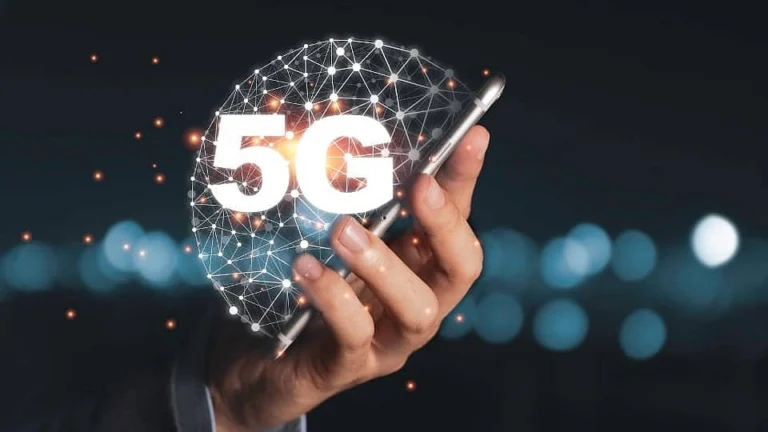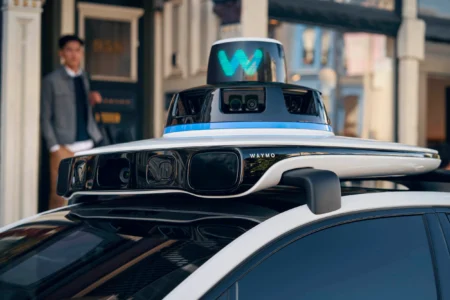Introduction
The global rollout of 5G technology in 2025 is revolutionizing industries and enhancing connectivity across the world. With ultra-fast speeds, low latency, and improved network reliability, 5G expansion is accelerating advancements in IoT, smart cities, autonomous vehicles, and remote work. This blog explores what 5G is, its key applications, benefits, challenges, and future trends that will define its growth.
What is 5G?
5G is the fifth-generation mobile network that offers faster data transmission, reduced latency, and increased network capacity compared to its predecessor, 4G LTE. It leverages millimeter waves (mmWave), small cells, and beamforming to improve performance and connectivity.
Key Features of 5G:
- High Speed: Up to 10 Gbps, significantly faster than 4G.
- Ultra-Low Latency: Less than 1 millisecond, crucial for real-time applications.
- Massive Connectivity: Supports up to 1 million devices per square kilometer.
- Energy Efficiency: More efficient than previous networks, reducing power consumption.
Key Applications of 5G in 2025
5G technology is transforming multiple sectors, enabling faster communication, automation, and innovation.
1. Internet of Things (IoT) & Smart Cities
- 5G-enabled smart cities improve traffic management, waste disposal, and energy efficiency.
- IoT devices such as smart meters, sensors, and AI-powered surveillance rely on 5G for real-time data exchange.
Example: Cities like Singapore and Dubai are leveraging 5G-powered IoT to enhance public services and infrastructure.
2. Autonomous Vehicles & Smart Transportation
- 5G allows instant vehicle-to-vehicle (V2V) and vehicle-to-infrastructure (V2I) communication.
- Enables self-driving cars to make real-time decisions based on road conditions and traffic flow.
Example: Companies like Tesla and Waymo use 5G to enhance autonomous driving capabilities.
3. Augmented Reality (AR) & Virtual Reality (VR)
- 5G-powered AR/VR experiences enable immersive gaming, training, and education.
- Businesses use AR for interactive marketing and remote collaboration.
Example: 5G enhances metaverse experiences by providing low-latency, high-bandwidth connections.
4. Remote Work & Telecommunication
- 5G improves video conferencing, cloud computing, and virtual collaboration tools.
- Companies can implement 5G private networks for secure and high-speed data access.
Example: Enterprises use 5G-powered hybrid work models to improve productivity and remote access.
5. Healthcare & Telemedicine
- 5G enables real-time remote surgeries and AI-powered diagnostics.
- High-speed data transfer improves medical imaging and remote patient monitoring.
Example: Hospitals are using 5G robots and AI-driven healthcare applications to enhance patient care.
6. Industrial Automation & Smart Factories
- 5G enhances real-time monitoring of industrial machinery for predictive maintenance.
- AI-powered robotics and automation improve manufacturing efficiency.
Example: Companies like Siemens and Bosch use 5G-enabled automation to optimize supply chains.
7. 5G in Entertainment & Media
- Faster streaming and high-resolution gaming with reduced lag.
- AI-driven personalized content recommendations based on real-time data analysis.
Example: Streaming platforms like Netflix and Twitch benefit from 5G’s high-speed and low latency.
Benefits of 5G Expansion
The widespread adoption of 5G provides numerous advantages:
1. Faster & Reliable Connectivity
5G ensures high-speed internet access with improved network reliability.
2. Reduced Network Congestion
Supports millions of devices simultaneously without slowdowns.
3. Improved Remote Work & Digital Inclusion
Expands internet access to rural areas, bridging the digital divide.
4. Revolutionizing Smart Cities & IoT
Drives sustainable urban development through AI-powered infrastructure.
5. Economic Growth & Job Creation
5G fuels technological innovation, startup growth, and job opportunities.
Challenges & Concerns of 5G Expansion
Despite its potential, 5G faces technical, regulatory, and security challenges:
1. Infrastructure Costs & Deployment Challenges
- 5G requires new base stations, fiber optic networks, and small cell towers.
- Rural and developing regions face slower adoption due to high costs.
2. Security & Privacy Risks
- 5G networks increase cybersecurity risks due to higher connectivity.
- AI-driven cyberattacks and data breaches require advanced security protocols.
3. Health & Environmental Concerns
- Some concerns exist about radiation exposure from 5G towers.
- Studies are ongoing to assess long-term health and environmental impacts.
4. Global 5G Competition & Geopolitical Conflicts
- Countries like China, the US, and Europe are competing for 5G dominance.
- Trade restrictions and regulations impact 5G equipment supply chains.
Future of 5G: What’s Next?
The evolution of 5G will drive new innovations in connectivity and digital transformation.
1. 5G-Advanced (5G-A) & 6G Development
- 5G-A will enhance AI-driven automation, latency reduction, and bandwidth efficiency.
- 6G research is underway, focusing on AI-powered networking and terahertz frequencies.
2. AI & Edge Computing Integration
- AI-powered network optimization will enhance 5G performance and security.
- Edge computing + 5G will reduce latency in IoT and industrial applications.
3. Satellite-5G Hybrid Networks
- Integration of satellite-based 5G networks for global high-speed coverage.
- Companies like SpaceX’s Starlink and Amazon’s Project Kuiper are working on 5G-compatible satellite services.
4. Increased 5G Accessibility & Smart Cities Expansion
- Governments and telecom providers are expanding 5G infrastructure to underserved areas.
- More smart city projects will rely on 5G for AI-powered urban planning.
Conclusion
The expansion of 5G in 2025 is revolutionizing industries, enabling real-time applications, and driving digital transformation. While challenges remain, the future of 5G promises enhanced connectivity, AI-driven automation, and global economic growth.
What’s Next?
Are you ready for the 5G revolution? Stay informed about 5G advancements, smart city innovations, and next-gen connectivity solutions.








